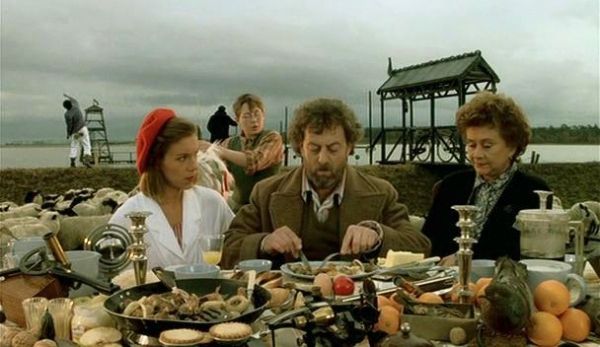Seeing Things As The Person At Fault Does

The Daily Stoic for March 12th: “Seeing things as the person at fault does”:
“Whenever someone has done wrong by you, immediately consider what notion of good or evil they had in doing it. For when you see that, you’ll feel compassion, instead of astonishment or rage. For you may yourself have the same notions of good and evil, or similar ones, in which case you’ll make an allowance for what they’ve done. But if you no longer hold the same notions, you’ll be more readily gracious for their error.”
—MARCUS AURELIUS, MEDITATIONS, 7.26
Today’s stoic holds that everybody thinks they are acting rightfully. This simple truth is easy to forget when their vision of good or evil clashes with our own.
I am not the most empathic person in the world. I know there’s still a lot of things I don’t understand, or a lot of times when I fail to put myself in the shoes of other people.
However, I try my best every day. Traveling and getting to know other cultures really helps.
When you understand that nationalities, flags, religions, and all those things that separate or differentiate us are not really that important, it becomes easier to understand or at least listen to other points of view.
It’s no surprise that the most close-minded people are the ones that have never left their villages. These are the areas where Brexit, pro-independence Catalonians and Le-Pen or Trump voters live. All these movements try to close frontiers and make the world a smaller place. It’s no coincidence either that poor countries, with uneducated populations without resources or chances to travel, are the ones where fundamentalist regimes thrive.
I’ve met people from many different backgrounds. Religious, atheists, liberals, conservatives, old and young. I think there’s something to learn from everybody.
Seeing Things As The Person At Fault Does
Of course, trying to understand someone doesn’t imply agreeing with that person. We all have our thoughts, values and beliefs.
Nonetheless, it’s important, specially when someone offends us or does something we dislike, to try at least for a moment to put ourselves in their place. Then, we will realize that they are not those evil people we thought they were. They are not even “wrong” either, because… how can we say that we are objectively “right”?
They just see the world through different eyes.
My sister is a catholic. When she was about to get married, I asked her if I could go to her weeding with someone. She replied “as long as it’s not someone you’ve met the night before”. From her tone, that was an obvious pun to the fact that I’m gay. Later during her wedding speech, she affirmed “we want to show the world what a true marriage is: a man and a woman”.
Those words did hurt me. A lot. Specially because they came from someone I love. I couldn’t understand them then.
However, over time, I’ve come to realize that she didn’t pronounce them to hurt me. Probably she was not even aware about that, or won’t remember it today. It was just part of her beliefs back then. And I know she still loves me.
Conclusion
Today’s Daily Stoic, “Seeing things as the person at fault does”, asks us to do an effort to understand the motivations behind the behavior of people acting “wrong”. In my experience, most of us never think we are being evil on purpose. In our minds, we are acting rightfully.
It just happens that we have different points of view. Traveling, developing our empathy, and getting to know other cultures and people, can help us understand the motivations behind people’s actions.




Comments ()